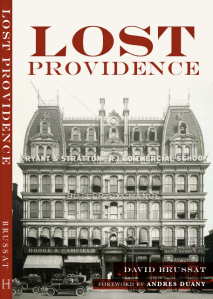
Sir Roger Vernon Scruton, FBA FRSL (photo by Pete Helme)
Death took Roger Scruton today. He was the world’s deepest thinker on architecture and aesthetics, which were embedded in the conservatism of his broader philosophy. Scruton embraced tradition, holding that “the tried and true” are a stronger foundation than novelty and experiment for the good life, for public policy, for cities and towns, and for the creation of beauty in art and in architecture. The author of more than 50 books, a prose stylist of gentle precision, and a brave crusader for intellectual freedom in Soviet-ruled Eastern Europe, Scruton was knighted by Queen Elizabeth in 2016.
I feel a particular sadness at Sir Roger’s passing, from cancer, at 75. I first entered the orbit of his ideas through his 1995 book The Classical Vernacular, which became my bible. In 1999, on a visit to London, I called him up out of the blue and he invited me to his small, book-lined pied-à-terre behind the Burlington Arcade. We went out to hear a lecture by the noted architectural historian David Watkin. In 2011, I spotted him at a symposium in New York but, going up to greet him, it turned out I’d mistaken him for Robert Adam, the celebrated British classicist.
When I started reading Scruton and finally met the philosopher, I was unaware that his conservatism stretched way beyond aesthetics, architecture and classicism. Yet it was a perfectly natural fit. Ideas that spring from, say, Edmund Burke reach out not just to the right but the left. A building that arises from practices hundreds of years in the making, the accumulated wisdom of trial and error by generation after generation of builders, is more likely to reflect the natural preferences of mankind than a building whose design is new, novel, just off the blackboard, untried and, most likely, untrue. The same goes for an idea or a form of government. A respect for tradition would serve all of us with equal capability in the realms of politics and policy, whether we agree with this or not.
“The classical idiom,” writes Scruton in The Classical Vernacular, “does not so much impose unity as make diversity agreeable.” I’m sure he would urge that a politics that embraces this liberality is far more likely to be a conservative politics – in short, one that liberals should find agreeable, too. In another of my favorite passages, he makes a similar point in discussing the social impact of a street lined with classical buildings:
The classical wall, which is humanly proportioned, safe, gregar- ious, and quietly vigilant, constantly reminds the pedestrian that he is not alone, that he is in a world of human encounter, and that he must match the good manners of the wall which guides him.
Sir Roger will be missed by classicists and conservatives, but also by people who disagree with him, or have never heard of him. His ideas will improve and beautify the world for everyone, whether they like it or not, and will do so, I am sure, long after his life and work bear the fruits of tomorrow’s happier society. Roger Vernon Scruton, RIP.



Thank you for sharing. We are fans and heard this news here first.
May he rest in peace.
LikeLike
Scruton brings up the “Era of the useless degree”. That has always been a scenario, what’s changed is professors have tried to export the model of the academically inclined to justify their field of study as profitable. In essence they built a bubble (cranked out as many students with degrees in eng lit, latin, archaeology, social sciences), used protectionism (tenure to keep their jobs safe) to limit the hiring field for new graduates so they could stay onboard for as long as possible, sold the idea of such a degree as crucial to the government. Then when the bubble burst, the kids who’ve graduated (if they graduated) have realized they’d acrewed a massive amount of debt for a degree that’s revealed to be useless.
The most diehard leftist College professors way beyond their 70’s. They were the hippies of the 60’s and 70’s. The difference a lot of those hippies; realized drugs and free love doesn’t pay bills; so they shaved, put their bras back on and went on to be societal members again. But those too commited and in the grasp of the revolutionary manifesto made the life for themselves as the sculptors of the American youth. 40 years later they F****ed them over with thousands in debt, no job and no prospects for one. But succeeded in turning them into exactly what they wanted. Vile America hating revolutionaries.
LikeLike
Very sad news – his presence will be missed.
LikeLike
Very sad, indeed. We hosted Sir Roger for three distinct lectures and an intimate dinner in New Orleans. His treatise on Beauty will forever remain one of my favorites. Peace.
LikeLike